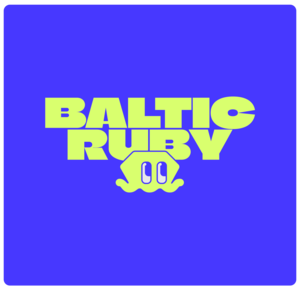| CFP closed at | January 31, 2026 23:30 UTC |
| (Local) |
You can never have too many great talks! That’s why we’ve extended the CFP until January 31.
Baltic Ruby is a conference that travels through the Ruby community — helping it gain more energy, more inspiration, and more resources to grow and support local Rubyists.
In 2026, we’re heading to Hamburg to join forces with Ruby Unconf and create a one-of-a-kind event that blends two worlds: a traditional curated lineup of CFP-selected talks, and an unconference format where anyone can step up and become a speaker on the spot.
This Call for Papers is for the main lineup. We’re planning to feature 10 to 13 talks across two days.
In past years, we’ve welcomed speakers like Matz, Tim Riley, Marco Roth, and many other respected contributors and voices from the Ruby world. But not only them.
We’ve always put special emphasis on diversity — and proudly made space for new voices. Around 50% of our speakers typically come from local communities or are first-time names on the Ruby stage.
The same goes for content. Each year, the lineup has had its own unique flavor — with a tilt toward Ruby, frameworks, open source, or something else entirely. But there’s always room for fresh, relevant, and exciting ideas beyond any one narrow theme.
This year is no different. We’d love to see a variety of talks that reflect where the industry is heading. That said, in 2026 we’re giving special attention to Rails — so if that’s your jam, you’re extra welcome!
So — welcome to Baltic Ruby. There’s space for every kind of talk here, and every submission will be reviewed by our program committee — made up of Ruby community and conference organizers from across Europe.
CFP Description
We’re looking for talks that speak to developers — deep, practical, inspiring, or just plain fun. We’re especially interested in developer-centered topics such as:
Core Ruby & Rails
- Deep dives into Ruby internals
- Exploring Ruby 3.3 and what’s next
- Rails performance tuning, ActiveRecord tricks, edge-case debugging
- Building modern apps with Hotwire, Turbo, Stimulus, or ViewComponent
- Upgrading legacy Rails apps without losing your sanity
- Patterns for service objects, concerns, decorators, serializers
Architecture & Code Design
- Monolith vs Microservices in Ruby
- Modular design and engines in Rails
- Clean code practices in large Ruby codebases
- Object-oriented patterns in Ruby
- Event-driven systems and background jobs (Sidekiq, etc.)
Testing & Reliability
- Modern testing workflows with RSpec, Minitest, or others
- Mutation testing, property-based testing, fuzzing
- CI/CD pipelines for Ruby apps
- Error handling and observability (Sentry, Honeybadger, etc.)
Security & Performance
- Security patterns in Rails
- Preventing common vulnerabilities (e.g., mass assignment, XSS, CSRF)
- Performance profiling and optimization (memory, GC, queries)
- Caching strategies (Redis, HTTP caching, Russian doll)
Tooling & Developer Experience
- Improving dev workflows with custom tooling
- dotfiles, CLI utilities, editors, plugins
- Productivity tips for Rubyists
- Automation with Rake, Thor, or custom scripts
Open Source & Community Contributions
- Maintaining a gem or OSS project
- How to write a well-documented gem
- Encouraging contributors and building healthy repositories
- Tooling for maintainers
Other technical explorations
- Integrating Ruby with other languages (Rust, WASM, etc.)
- GraphQL and APIs in Ruby apps
- Data-heavy apps and working with Postgres/Redis/ElasticSearch
- Non-Rails frameworks: Hanami, Roda, Sinatra
- Terminal UIs, scripting, and Ruby outside the web
We welcome speakers of all experience levels — whether it’s your first talk or your hundredth. We especially encourage submissions from underrepresented groups in tech.
Submissions are open until December 31, 2025.
Bring your ideas — if it’s relevant to Ruby developers, we want to hear it!
